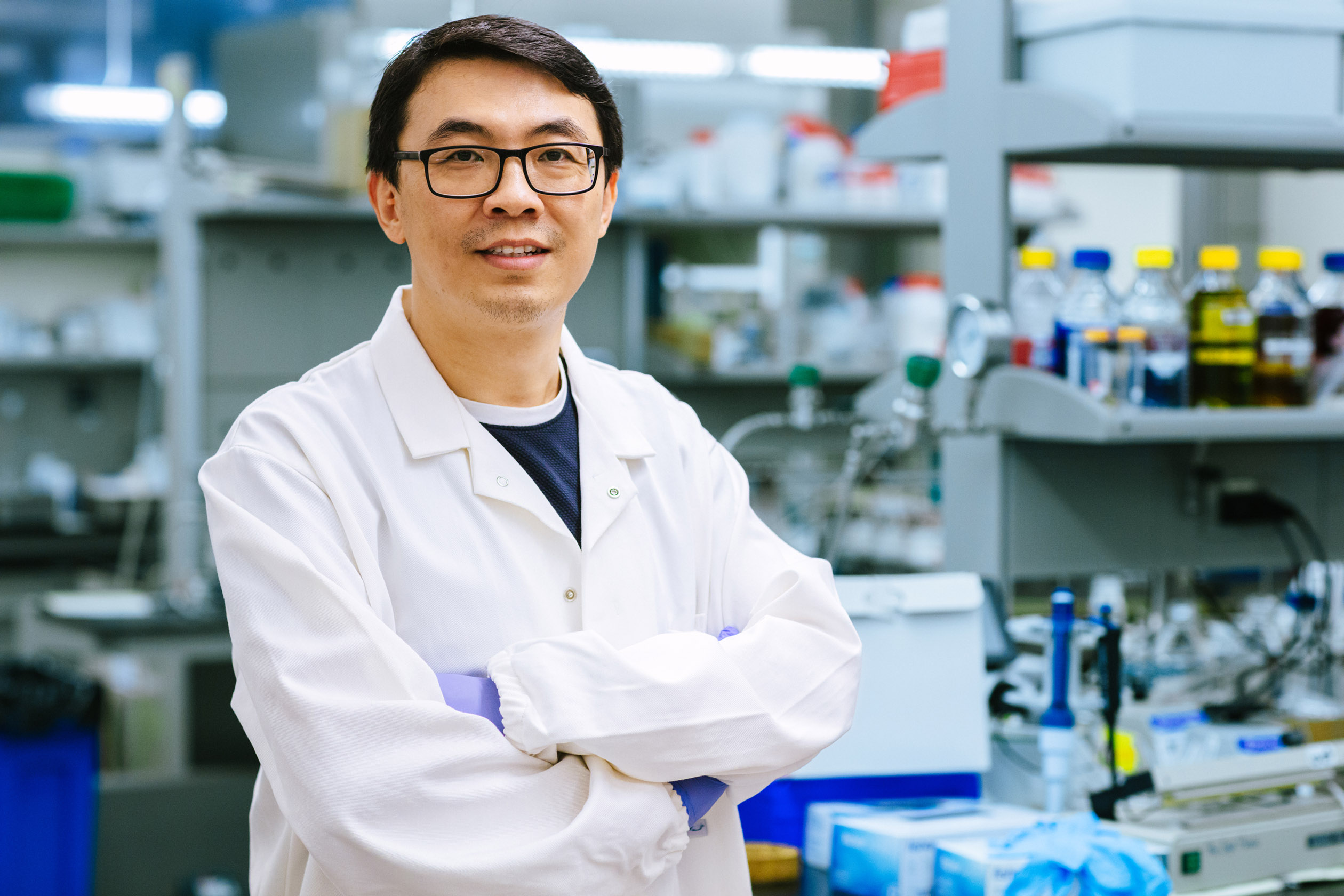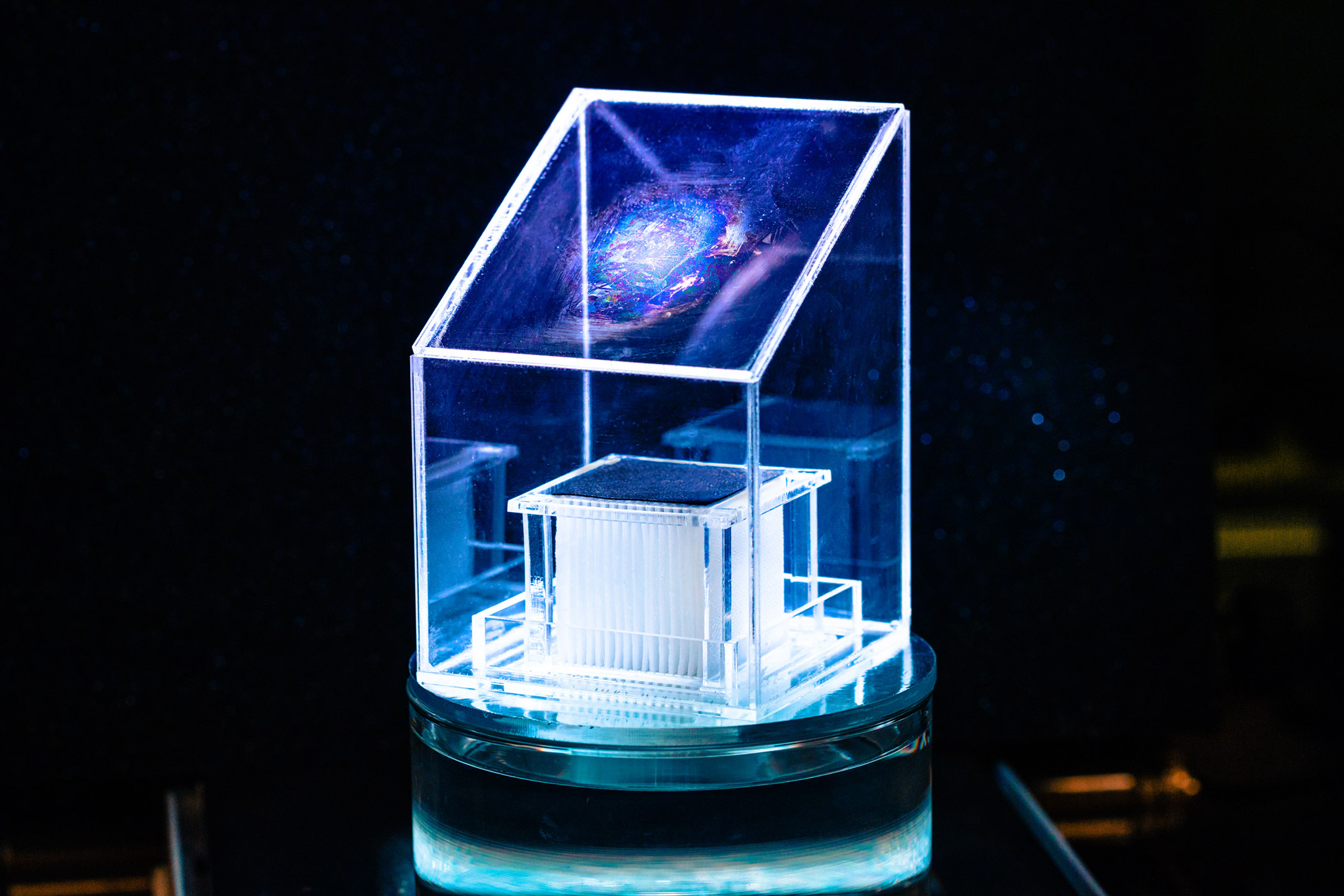Professor Qiaoqiang Gan elected as SPIE Fellow

Portrait of KAUST Professor of Material Science and Engineering, Qiaoqiang Gan in the Sustainable Photonics Energy Research (SuPER) Lab. © 2023 KAUST; Anastasia Serin.
SPIE, the international society for optics and photonics, recently welcomed 83 Members as new Fellows of the Society. Qiaoqiang Gan, KAUST professor of material science and engineering, was among the new inductees elected to the Society's 2023 Fellows Class. The applied physicist joins a notable group of members who have served the optics and photonics community with distinction.
SPIE's mission is to collaborate with researchers, educators and industry to advance light-based research and technologies. The Society has more than 258,000 members from 184 countries, with over 1,700 members becoming Fellows since SPIE's establishment in 1955. According to SPIE, "Fellows are members of distinction who have made significant scientific and technical contributions in the multidisciplinary fields of optics, photonics and imaging. Fellows are honored for their technical achievement and service to the general optics community and SPIE in particular." "I am thrilled to be elected as a Fellow of SPIE since the society fosters collaboration between academia and industry. This connection is also one of the major aims for my research efforts," Gan noted.
A SuPER approach to basic light-matter interaction
Professor Gan joined KAUST in late 2021 from the University at Buffalo (UB), State University of New York, U.S., where he held a full professor position within the UB Department of Electrical Engineering. Gan is a world-renowned expert in light-matter interaction for nanosensing and green photonics. A pioneer in the use of plasmonic metamaterials for the "rainbow" trapping effect, he has published more than 120 peer-reviewed journal articles on photonics for nanosensing and green photonics.

Dr. Qiaoqiang Gan is leading his team to develop photonics materials and systems to address energy and sustainability challenges at KAUST. Photo: KAUST
His research aims to bridge the gaps between fundamental investigation, application development and technology transfer. Currently, he is applying nanomaterial and structure processing and engineering to investigate basic light-matter interaction in extreme dimensions. Furthermore, Gan's research focuses on developing advanced manufacturing methods to monitor biomedical conditions, conserve energy and ensure the sustainability of the environment through optical phenomena.
His Sustainable Photonics Energy Research (SuPER) Lab focuses on enhancing the optical sensing capability for disease detection by investigating enhanced light-matter interactions and smart sensing mechanisms. Consequently, Gan is developing collaborative efforts with colleagues in the
KAUST Smart Health Initiative and
Artificial Intelligence Initiative programs. "As a new group at KAUST launched in 2022, I am working with my group members to develop novel applications to tackle global challenges. Together, we hope to change people's lives with enhanced sustainability using green photonics materials and technologies," he concluded.

